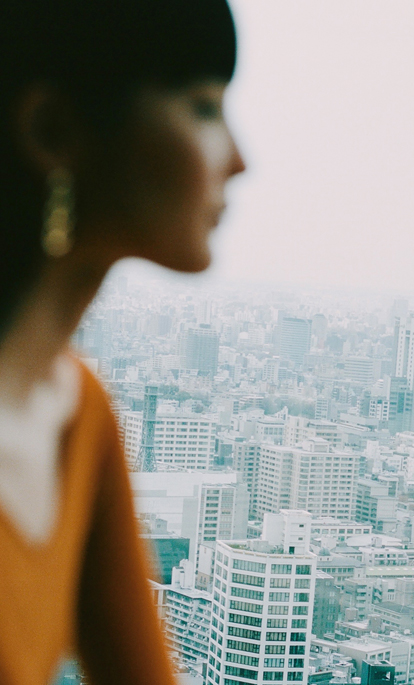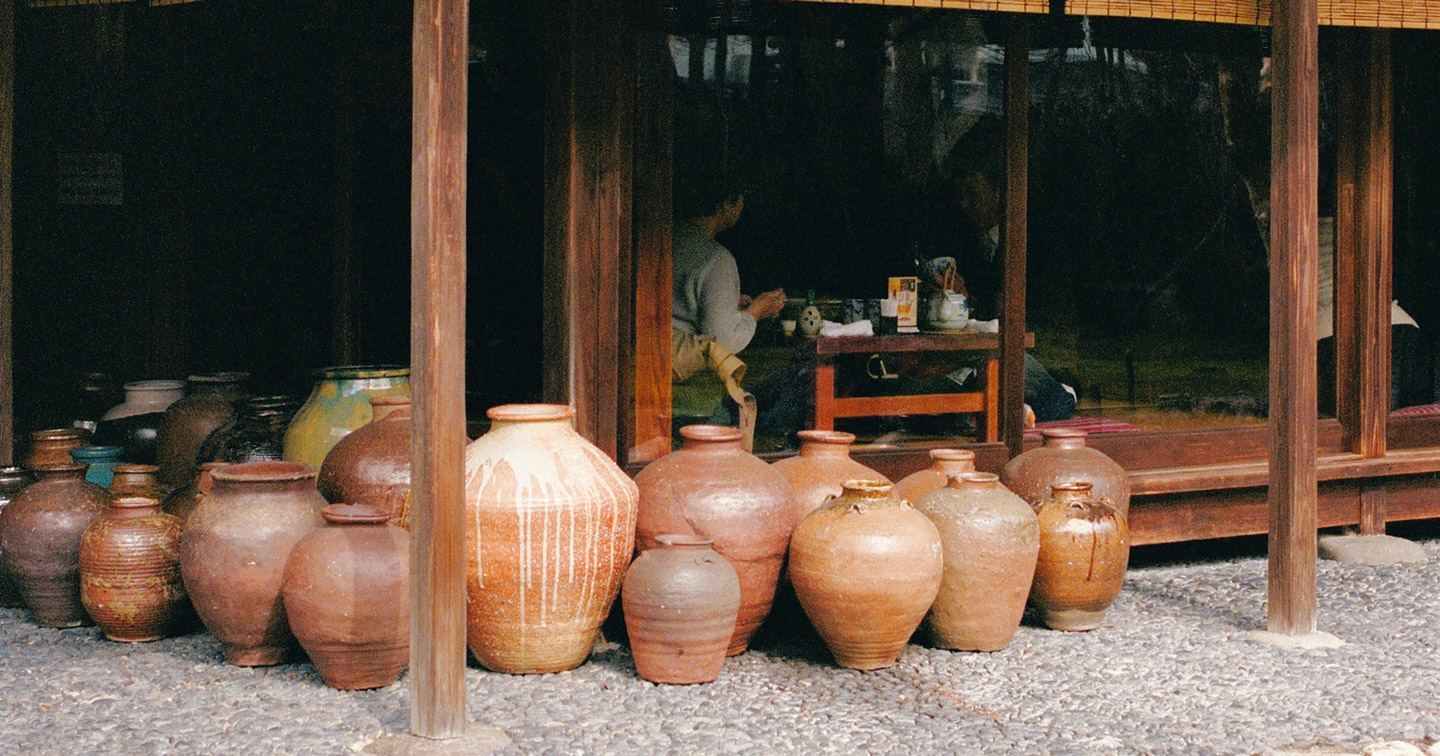
A few suggestions to get the holiday planning process started

Whether you’re a family seeking Tokyo’s futuristic museums or a couple wishing to relax in Hokkaido’s onsens, we’ve got you covered. Our consultants have first-hand experience of living in Japan, so we know the secret spots off the beaten track (and how to reach them). Train travel is the best and most efficient way to explore the country, and wherever you visit, getting to grips with Japan’s diverse culture is a must. We work with guides who provide in-depth experiences on the history of Samurai or Geisha culture, and we have hand-picked traditional ryokan properties to rest your head in.
ENQUIRE NOWDiscover different ways to explore Japan
Practical advice and inspiration to help you prepare for your holiday
With our consultants boasting a combined seven years of lived experience in Japan, navigating this remarkable country from Kyoto’s temples to Tokyo’s neon lights is second nature to us, and the team are ready and waiting to use this knowledge to plan your bespoke trip. Our expertise doesn’t end there, as our attentive Concierges in Japan are just a WhatsApp away, enhancing your holiday with invaluable knowledge. Our guides will impart yet more wisdom to add to your trip, providing authentic, in-depth cultural experiences, be it learning about the history of Samurai or Geisha culture.

Japan holidays are, above all, an immersion in Japanese culture. Enjoy bewitching encounters with Edo-era 'floating world' culture; Japanese cinema; the imagery of Kabuki theatre or a tea ceremony; the subtle symbolism of a traditional kimono motif or Ikebana flower arrangement; and the often-enigmatic universe of Japanese writers and illustrators. Lovers of nature will also be captivated by Japan's majestic, romantic scenery, we’re talking cherry blossom petals carpeting the streets, perfectly manicured Japanese gardens and surrounding park areas. For travellers who love a new and original experience, a stay at an onsen (hot spring spa), a ryokan (traditional inn) or a Buddhist temple is the perfect way to reiterate that this country really is like no other place on Earth. Known as a profoundly spiritual place, Japan is perfect for anyone looking to find themselves, or their inner peace. Japan is also a superb family holiday destination, and ideal for teens particularly thanks to the abundance of adolescence, Manga, state-of-the-art gadgets, electronics, gaming consoles and inter-active games, robotics, and very creative fashion all ready and waiting for you to explore.
Quite simply, a holiday to Japan is like visiting another planet. It is a country that is both strangely familiar yet totally unpredictable, surprising and original in its traditions, culture and civilisation. Japan is home to an ancient civilisation which is very attached to its values, codes, rituals, beliefs and roots and yet resolutely looks towards the future. Japanese culture is unlike any other, with the contrasts here stronger and more striking than arguably anywhere else in the world. Japan is one of the few countries that speaks as much to the heart as they do to the head. It’s a destination to visit and discover.
The best option for Japan holidays when it comes to flights, accommodation and train passes is a combination of slick organisation and freedom to ensure you have the best experience. Many often find themselves gravitating towards a Japanese excursion during July but it really is exquisite all year round, essentially there is always a right time to visit. Despite the language barrier, the Japanese will do their best to listen to your needs and you will find that they are as interested in listening as they are about anything else. A typical 15-day itinerary and tour could include Tokyo, Hakone, Takayama, Kanazawa, Kyoto, Mount Koya-san, Miyajima Island and Osaka, staying alternately in international hotels and ryokan traditional inns, and with one night staying in a temple.
Few places in the world offer visitors such a diverse a range of experiences as Japan, from the snow-covered mountains of Hokkaido in the north to the pristine beaches of Okinawa 2,000 miles further south. A tour here is unlike any other and with so much to see and do in the archipelago visitors simply do not have the luxury of enough time to see it all in one visit. Despite the wonders (particularly to someone from Britain) of the Japanese railway system, a nation that stretches some 2,000 miles from north to south is just too big to see all at once, and that's where we come in, with expert knowledge on which bits you should prioritise and which you should save for next time. In fact, of all the destinations in the Original Travel portfolio, Japan is probably the one that requires the most expert advice, given language barriers and the sheer alien nature (in a good way) of the country.
And what a country it is, with 127 million inhabitants living on increasingly over-crowded coastal plains beneath rugged mountain ranges that stretch the length of the islands, and with these megalopoli some of the most vibrant, innovative city destinations an urban warrior could wish to visit. Equally, those in search of calm and serenity can find respite from the hubbub surrounded by mountain peaks or in one of the country's remarkable Zen gardens or park areas to discover and explore.
It's the contrast between technology and tradition that makes Japan such an alluring destination for luxury travel, but with so much to see, careful planning is required. For the ideal 'beginner's guide to Japan' the starting point has to be Honshu - the main island - and home to Tokyo, Kyoto and even more cities worth seeing. For the time-pressed, there's a lovely loop taking in Tokyo, the beautiful rural area of Hakone (home to magnificent Mount Fuji), venerable Kyoto and then most likely the harrowing Hiroshima and elegant Miyajima island. A well-trodden route, but understandably so given what a perfect combination of experiences this represents - ultra-modernity, ancient capitals, urban energy and rural idylls, and a superb range of accommodation options from luxury hotels in Tokyo taking up the top floors of skyscrapers to luxury ryokan traditional Japanese inns in pristine countryside. For the smitten (trust us, you will be) looking to return, or the fortunate few with longer to explore, we passionately urge exploration beyond the above. Honshu itself has other unmissable luxury travel highlights, from bathing hot spring snow monkeys and skiing in Nagano to the UNESCO World Heritage old town of Takayama, confirming that this is a place to explore.
Further afield the islands of Hokkaido, Kyushu, Shikoku and Okinawa are all fascinating as well. For luxury skiing in Japan, the place to visit is northerly Hokkaido, and in particular the resort of Niseko. Beer drinkers, it’s worth noting that Hokkaido is also home of the Sapporo brand. Kyushu island, to the south west of Honshu, is renowned for onsen hot springs, spectacular volcano lakes (as seen in the classic Bond You Only Live Twice) and the beautiful southern city of Kagoshima, known as the 'Naples of Japan' thanks to its coastal setting and brooding volcano. Kyushu is already well off the tourist trail, and neighbouring Shikoku island even more so, but the place to go for temples and long distance walking trails; and then there's Okinawa for a taste of the tropics. Stay in a luxury ryokan by the beach for the ultimate in original beach holidays (that are perfect in July) and escape from the busyness of the cities.

Our team of destination experts will get to know you and your unique requirements for your holiday

We work with you to build an ultra-personalised holiday itinerary with your choice of accommodation, experiences and activities

All of our holidays include little extras designed to make a big difference to your trip, from fast-tracking you through airport check-in and security to our network of local Concierges